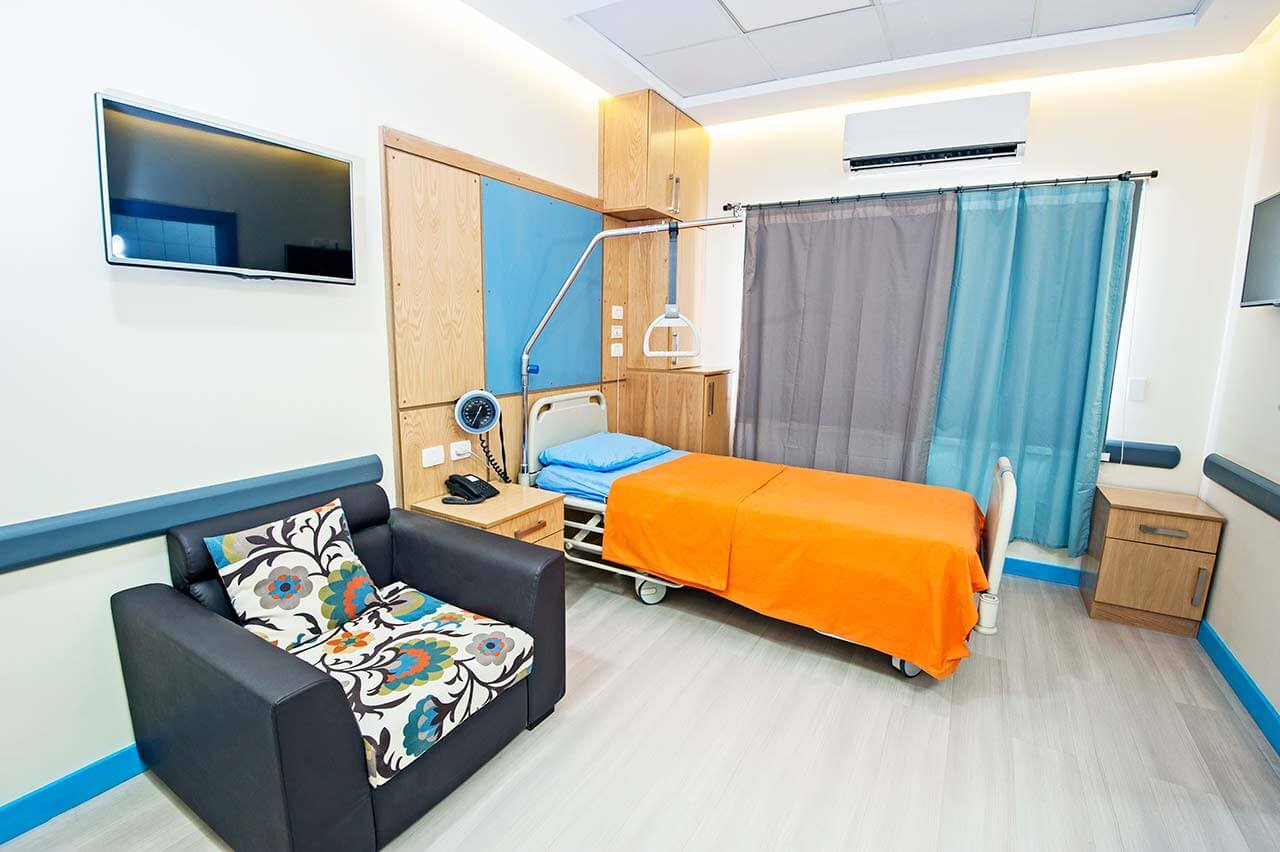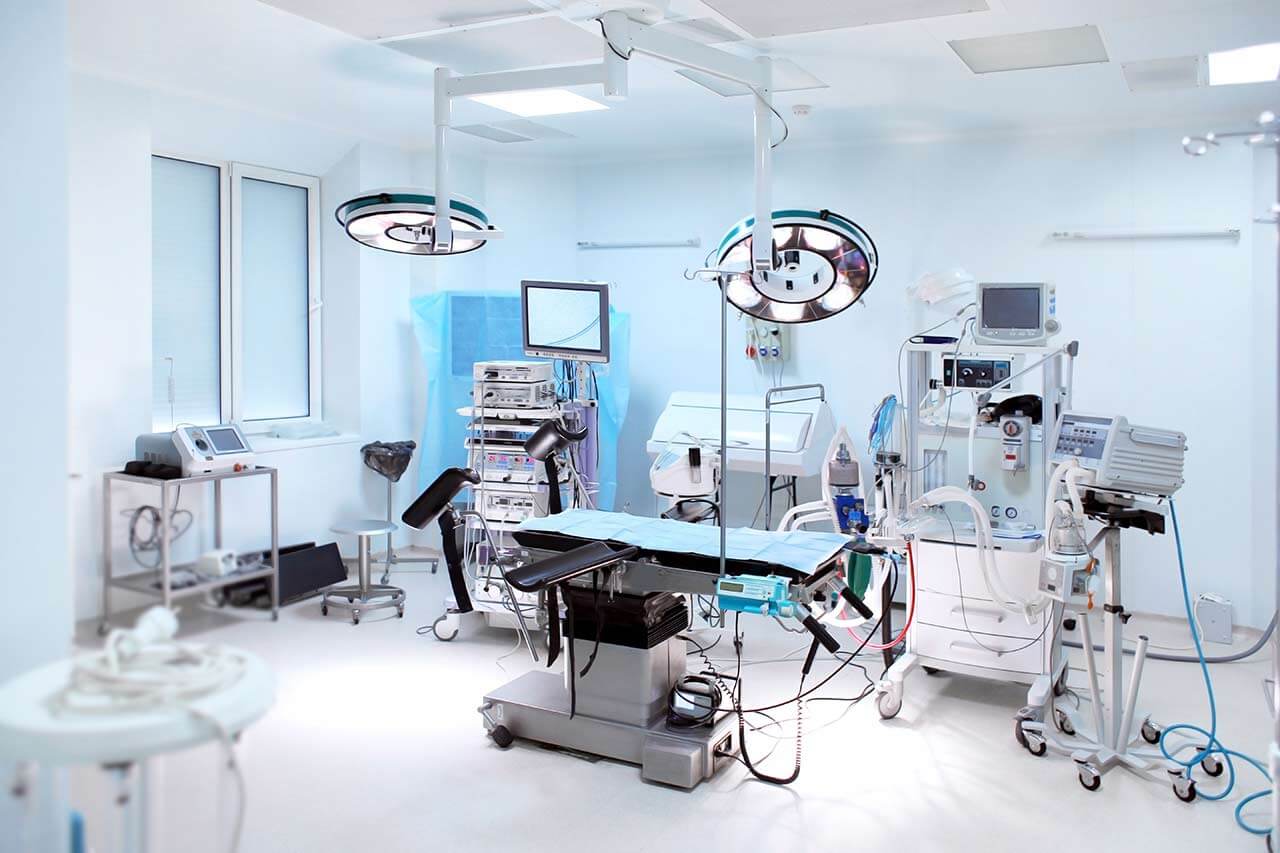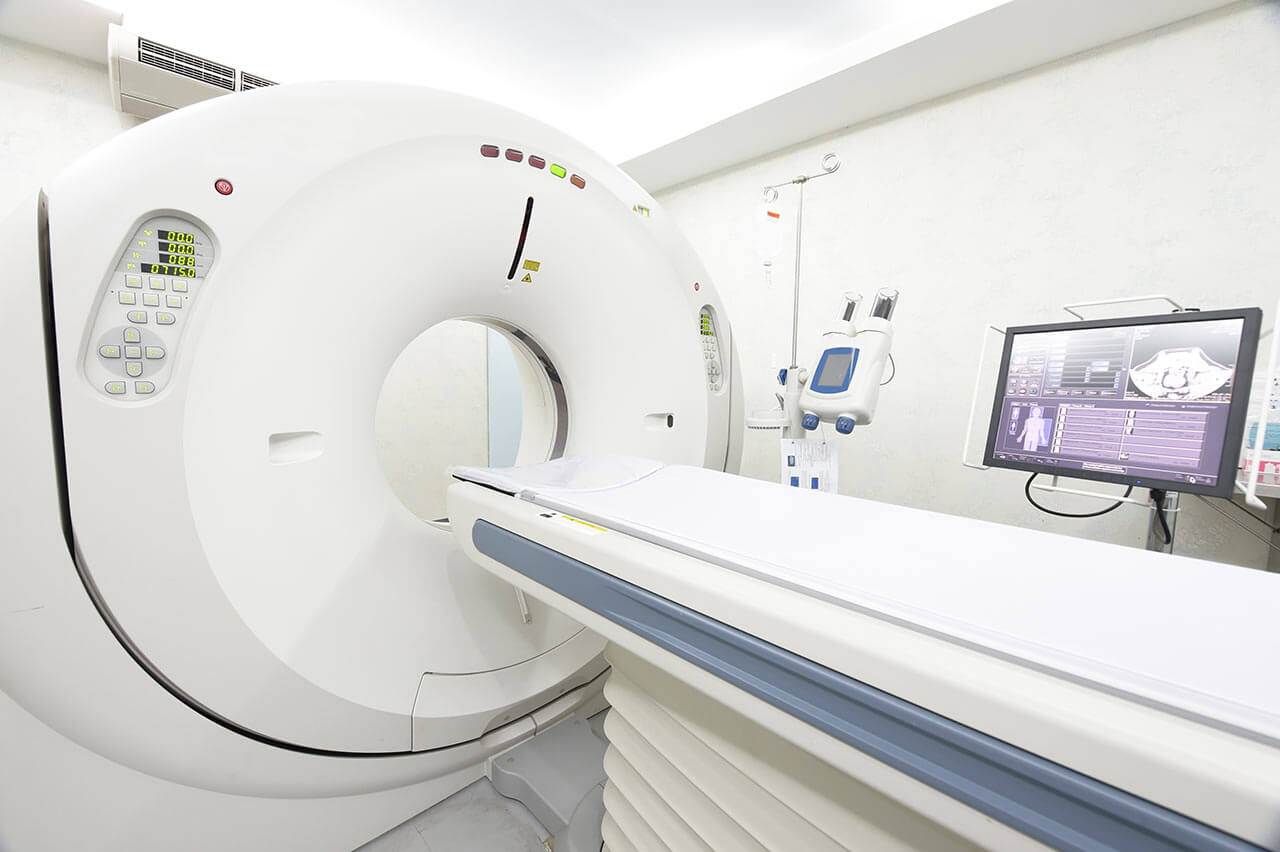
The program includes:
- Initial presentation in the clinic
- clinical history taking
(widespread pain for more than three months) - review of medical records
- physical examination
- laboratory tests:
- complete blood count
- general urine analysis
- biochemical analysis of blood
- TSH-basal, fT3, fT4
- immune status
- inflammation indicators (CRP, ESR)
- indicators blood coagulation
- differential diagnosis with other etiologies pain
- pain points testing
- consultation of related specialists
- symptomatic specific treatment
- the cost of essential medicines and materials
- nursing services
- control examinations
- full hospital accommodation
- developing of further guidance
Required documents
- Medical records
Service
You may also book:
 BookingHealth Price from:
BookingHealth Price from:
About the department
The Department of Rheumatology at the University Hospital Carl Gustav Carus Dresden offers the full range of diagnostic and therapeutic services in this medical field. Particular attention is paid to the treatment of patients with systemic autoimmune diseases (for example, systemic lupus erythematosus), early detection and timely treatment of inflammatory joint diseases. Comprehensive medical care is facilitated by close cooperation with the departments specializing in the related medical fields. The experts also actively collaborate with the University Center for Autoimmune and Rheumatic Entities (UCARE). The treatment involves the use of modern medicines for the complete elimination of rheumatic pathology or achievement of stable remission. Many diagnostic and therapeutic services are provided on an outpatient basis, but in complex clinical cases, the treatment takes place on an inpatient basis. The department is headed by Prof. Dr. med. Martin Aringer.
Rheumatoid arthritis is one of the most common diseases for which patients seek medical help from the department's doctors. The specialists of the medical facility have been treating this pathology for many years and have accumulated vast practical experience in this medical field. Rheumatoid arthritis is a chronic systemic connective tissue disease. The diagnostics begins with a clinical examination, the study of the patient's complaints, after which laboratory and instrumental tests are carried out. These may include joint ultrasound and X-ray scanning, arthroscopic tests, magnetic resonance imaging, scintigraphy. To treat rheumatoid arthritis, the department's specialists use unique drug therapy regimens adapted to the patient's individual needs. The goal of treatment is to relieve pain and improve the mobility of the affected joint or joints. As a rule, nonsteroidal anti-inflammatory drugs, glucocorticosteroids, basic drugs (for example, methotrexate, sulfasalazine, cyclophosphamide, azathioprine, enbrel, etc.) are prescribed to the patient. Biological therapy can also be used when indicated. The department's rheumatologists also prescribe physiotherapy procedures to eliminate joint stiffness and improve the patient's health.
The department's medical team is rightfully proud of its excellent results in the treatment of systemic autoimmune diseases: collagenosis, systemic vasculitis and arteritis. Of particular interest to the department's specialists is the treatment of systemic lupus erythematosus. Pathology can affect not only joints, but also kidneys, heart, lungs, brain, skin, and other organs. The confirmation of the diagnosis requires laboratory and instrumental tests: blood tests, urine tests, ultrasound scanning, X-ray, CT, MRI and other tests. The treatment of systemic lupus erythematosus is based on the intake of a set of drugs, which the attending physician prescribes according to the obtained diagnostic results. In most cases, patients receive glucocorticoids, hydroxychloroquine, nonsteroidal anti-inflammatory drugs, and other medications. The dosage and combination of drugs are determined depending on the severity of the pathology. It is also recommended to lead a proper lifestyle, follow a healthy diet, give up bad habits, etc.
The department's main clinical focuses include:
- Diagnostics and treatment of joint and spinal inflammatory diseases
- Chronic autoimmune diseases of the joints and/or spine
- Rheumatoid arthritis or chronic polyarthritis
- Psoriatic arthritis (joint inflammation caused by psoriasis)
- Arthritis caused by inflammatory bowel disease
- Ankylosing spondylitis
- Joint inflammation caused by impaired immunity in infectious diseases
- Reactive arthritis caused by intestinal infections (for example, salmonellosis) or urinary tract infections (for example, chlamydia)
- Reiter's syndrome affecting the eyes and sacroiliac joints
- Joint inflammation caused by infections
- Arthritis caused by viral infections (for example, rubella, parvovirus)
- Septic arthritis
- Gonococcal arthritis
- Borreliosis arthritis
- Joint inflammation caused by crystal deposition
- Gout (urate deposition)
- Pyrophosphate gout or chondrocalcinosis
- Joint inflammation due to concomitant diseases
- Arthritis in sarcoidosis
- Arthritis in collagenosis
- Arthritis in vasculitis
- Arthritis in polymyalgia rheumatica
- Arthritis in fever syndromes (for example, familial Mediterranean fever)
- Arthritis in malignant diseases (paraneoplastic arthritis)
- Chronic autoimmune diseases of the joints and/or spine
- Diagnostics and treatment of systemic autoimmune diseases
- Collagenoses
- Systemic lupus erythematosus
- Systemic scleroderma
- Mixed collagenosis or mixed connective tissue disease
- Primary Sjogren's syndrome
- Polymyositis and dermatomyositis
- Systemic vasculitis (autoimmune vasculitis)
- Granulomatosis with polyangiitis
- Microscopic polyangiitis
- Eosinophilic granulomatosis with polyangiitis (Churg-Strauss syndrome)
- Periarteritis nodosa
- Henoch-Schönlein purpura
- Behcet's disease
- Arteritis (autoimmune diseases of the large arteries)
- Giant cell arteritis or regional arteritis (temporal arteritis, Horton's disease)
- Takayasu's arteritis
- Collagenoses
- Diagnostics and treatment of other rheumatic diseases
Curriculum vitae
University Education and Medical Career
- 1986 - 1992 Study of Medicine at the University of Vienna.
- 1997 - 1999 Postdoctoral Fellowship, National Institutes of Health, Bethesda, Maryland (USA).
- 1992 - 1999 Postgraduate training in Internal Medicine.
- 1999 - 2004 Postgraduate training in Rheumatology.
- 1992 Venia Legendi in Internal Medicine.
- 2004 - 2005 University Course for Healthcare Managers, Medical University of Graz.
- 2004 - 2006 Curriculum coordinator at the Medical University of Vienna, curriculum area "Movement and performance".
- 2003 - 2006 Extraordinary University Professor and Head of the Department of Rheumatology, University Hospital Vienna.
- Since 2007 Professor of Internal Medicine and Rheumatology, Head of the Department of Rheumatology at the University Hospital Carl Gustav Carus Dresden.
Research Focuses
- Systemic lupus erythematosus.
- Systemic scleroderma.
- Cytokines and signal transduction.
- New therapeutic approaches.
- Registration of the consequences of diseases, their activity and outcomes.
Memberships in Scientific Societies
- American College of Rheumatology.
- Association of Clinical Pharmacologists.
- New York Academy of Sciences.
- Austrian Medical Society for Manual Medicine.
- Austrian Society of Internists.
- Austrian Society for Rheumatology.
Editorial Board Member in Scientific Journals
- Annals of Rheumatic Diseases (since 2004).
- Journal für Mineralstoffwechsel (since 2003).
Additional Training
- 1993 - 1997 Manual Medicine – Diploma of the Austrian Medical Chamber.
- 1997 - 1998 Introduction in Biomedical Statistics.
- 1998 - 1999 Basic Principles and Practice of Clinical Research (Introductory Course).
- 2003 Preparation for the 3rd phase clinical trials of medicines.
- 2004 Electrocardiography (basic course 1 and 2).
- 2005:
- First course on the evaluation of patients with systemic sclerosis EULAR (European League Against Rheumatism) / EUSTAR (European Scleroderma Trials and Research Group).
- Second EULAR course for systemic lupus erythematosus.
- 2005 Medical educational seminar "Gaining experience in teaching and assessment of knowledge", Medical University of Vienna.
- 2007 Second EULAR/EUSTAR evaluation course for patients with systemic scleroderma.
Scientific Awards
- 1993 EULAR Young Investigators Award.
- 1994 Dr. Kolassa Rheumatology Foundation Award.
- 1994 Austrian State Prize for Basic Research in Rheumatology.
- 2002 EULAR Member – ARC-EULAR International Exchange Award.
- 2004 Poster Award, First International Conference on Lupus Erythematosus.
- 2005 Award (1st degree) of the Wyeth Company and the Austrian Society for Rheumatology.
Photo: (с) depositphotos
About hospital
According to the reputable Focus magazine, the University Hospital Carl Gustav Carus Dresden ranks among the top five German hospitals!
The hospital is the benchmark for modern high-quality medicine. Positioning itself as a maximum care medical facility, the hospital represents all medical fields. There are 26 specialized departments, 6 institutes and 17 interdisciplinary centers, which cooperate closely with the clinical and scientific facilities of the Faculty of Medicine. The basis of successful practice is excellent equipment, which is regularly updated, as well as highly qualified, experienced medical personnel: world famous doctors and professors work here for the benefit of patients.
In addition to its main goal of caring for patients, the hospital is also active in training and professional development of medical personnel, as well as in the field of public health care. The priority focus of the work is research activity, which allows the doctors to introduce the innovative diagnostic and therapeutic techniques into clinical practice.
A special feature of the hospital is also the diagnostics and treatment of rare diseases. State-of-the-art equipment and well-coordinated work of doctors of various medical specialties make it possible to timely recognize pathologies rarely encountered in medical practice and select the most effective therapy. Specialization in rare diseases include neurology, endocrinology, hematology/oncology, and rare autoimmune diseases.
The hospital has 1,410 beds for patient hospitalization. About 55,900 inpatients and more than 233,975 outpatients undergo treatment here annually. A large medical team, consisting of about 1,000 highly qualified doctors, as well as over 2,000 nursing staff take care of the patients' health. Each patient is guaranteed an individual approach and the most effective treatment in accordance with current clinical protocols.
It should be noted that the university hospital enjoys an impeccable reputation not only in Germany, but also far beyond its borders, including Arab countries, post-Soviet states, Great Britain and the United States. Patients from different parts of the world come here for high-quality treatment for diseases of any severity. The highest credit of patient confidence is the main indicator of the fruitful work of doctors.
Photo: (с) depositphotos
Accommodation in hospital
Patients rooms
The patients of the University Hospital Carl Gustav Carus Dresden live in comfortable rooms made in bright colors and equipped with everything necessary. The standard patient room includes an automatically adjustable bed, a bedside table with a sliding table, a wardrobe, a telephone and a TV. There is also Wi-Fi (free) in the patient rooms.
If desired, patients may live in enhanced comfort patient rooms. These patient rooms have a more sophisticated design, upholstered furniture and a safe for storing valuables.
Meals and Menus
The patients of the hospital are offered a tasty, healthy and varied three meals a day. The menu is based on local cuisine and seasonal food. If you for some reason do not eat certain products, please inform the medical staff of the hospital in advance, and you will be offered an individual menu. The nutrition provided in the hospital is certified in accordance with the quality standards of the German Nutrition Society (DGE) for catering in German hospitals.
Further details
Standard rooms include:
Religion
The religious services are available upon request.
Accompanying person
Your accompanying person may stay with you in your patient room or at the hotel of your choice during the inpatient program.
Hotel
You may stay at the hotel of your choice during the outpatient program. Our managers will support you for selecting the best option.
The hospital offers a full range of laboratory diagnostic procedures (general, hormonal, tests for tumor markers, infections, antibodies, etc.), genetic tests, various modifications of ultrasound scans, CT scans, MRI and PET / CT, angiography, myelography, biopsy and other examinations. Treatment with medications, endoscopic and robotic operations, stereotaxic interventions is carried out here, modern types of radiation therapy are also used. The hospital offers patients all the necessary therapeutic techniques.
- Cochlear implantation
- Deep brain stimulation
- Treatment of benign prostatic hyperplasia with green laser
- Da Vinci prostatectomy
- Bone marrow transplantation
These are head and neck tumors, hearloss, amyotrophic lateral sclerosis, epilepsy, Parkinson disease, infertility, malignant tumors of the reproductive system, congenital anomalies of the genital organs and the urinary system, urinary incontinence, blood clotting disorders, leukemia and other pathologies.
- Otolaryngology (Center for Cochlear Implantation)
- Neurology and Epileptology
- Urology
- Oncology
- Gastroenterology and Hepatology
About 1,000 highly qualified doctors work at the hospital.





